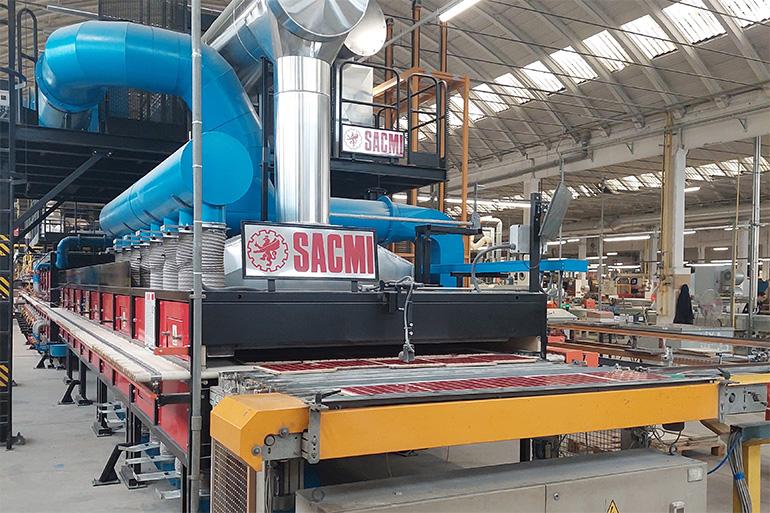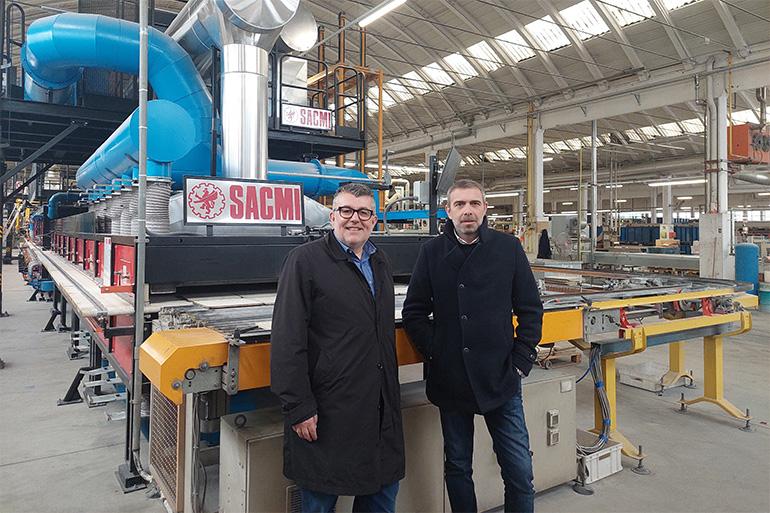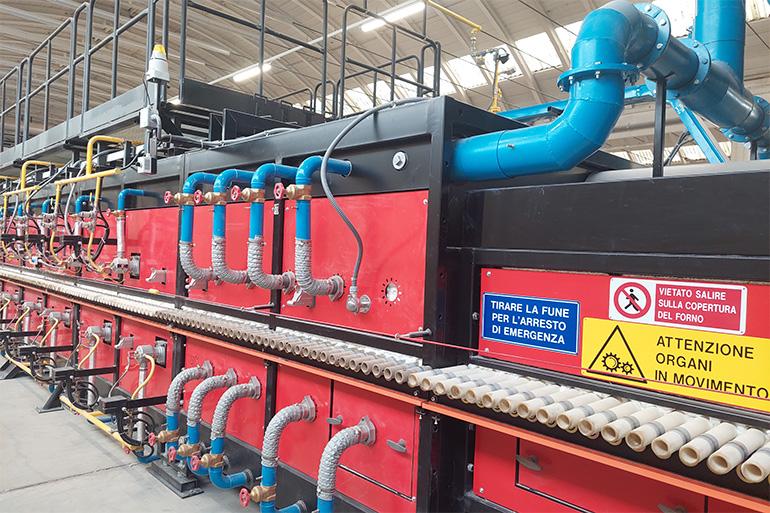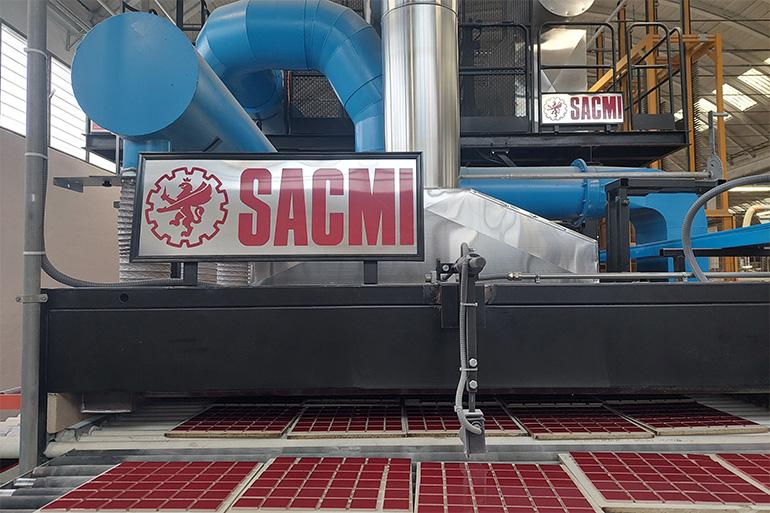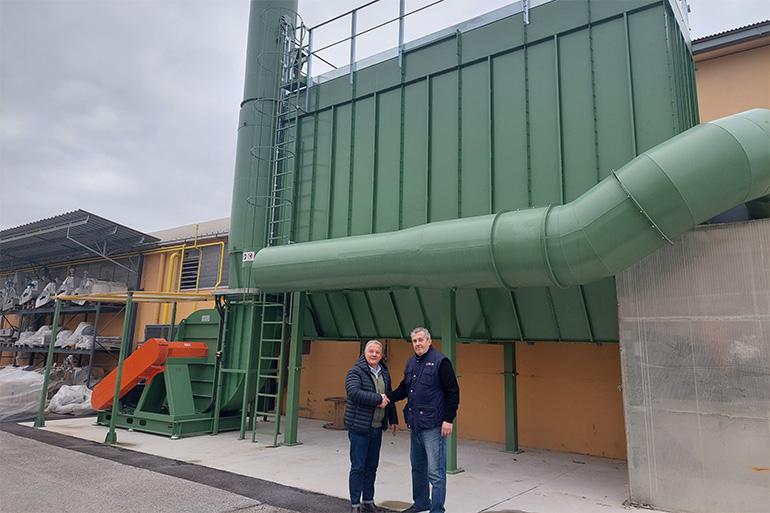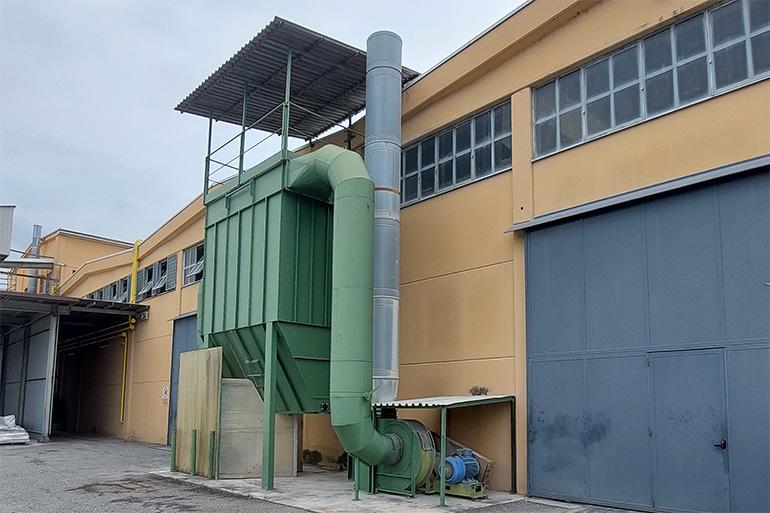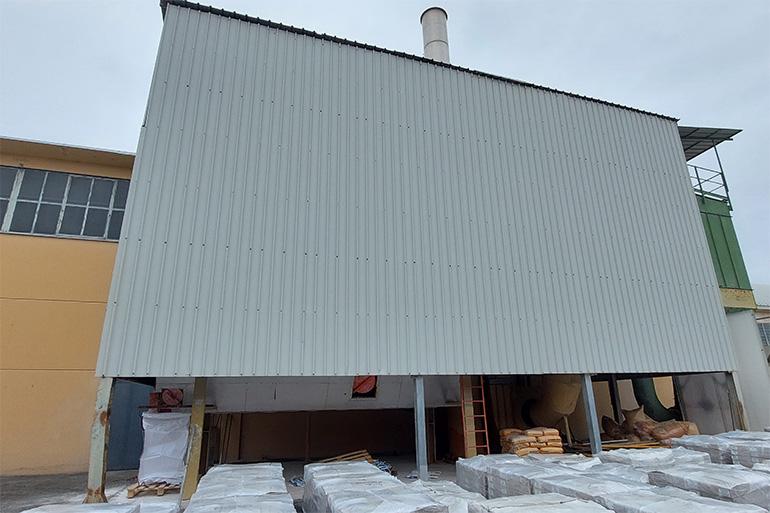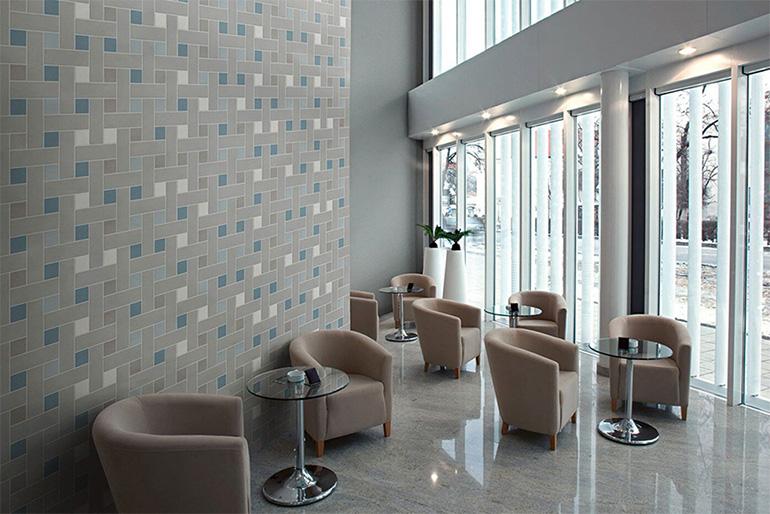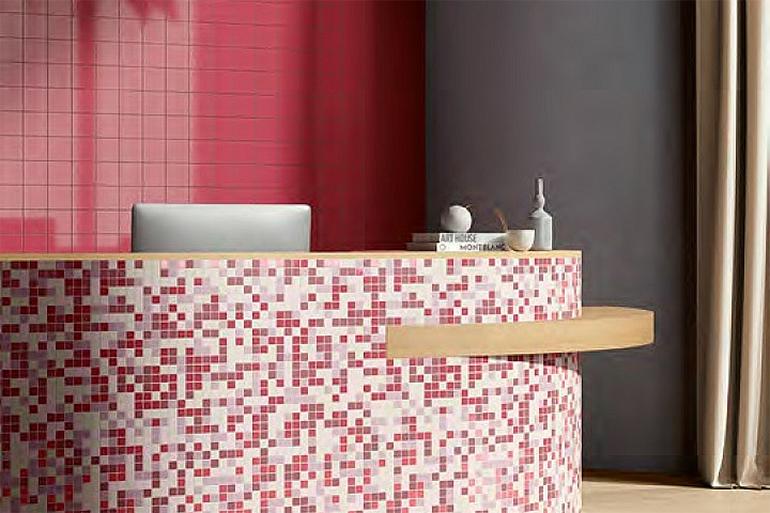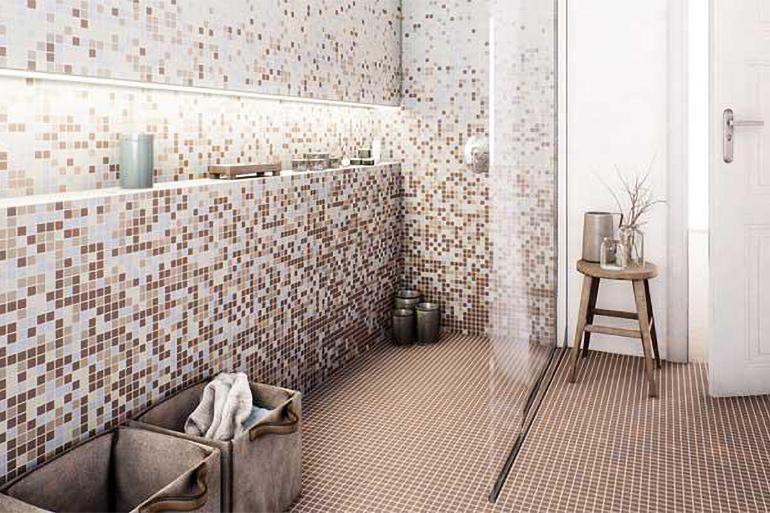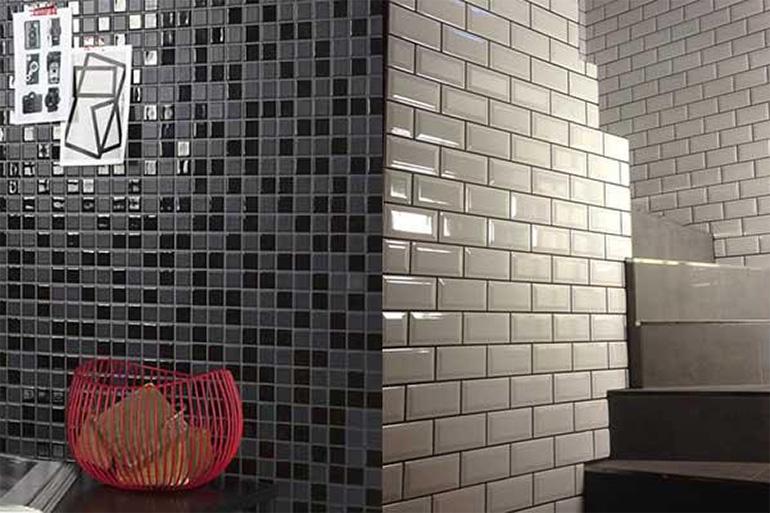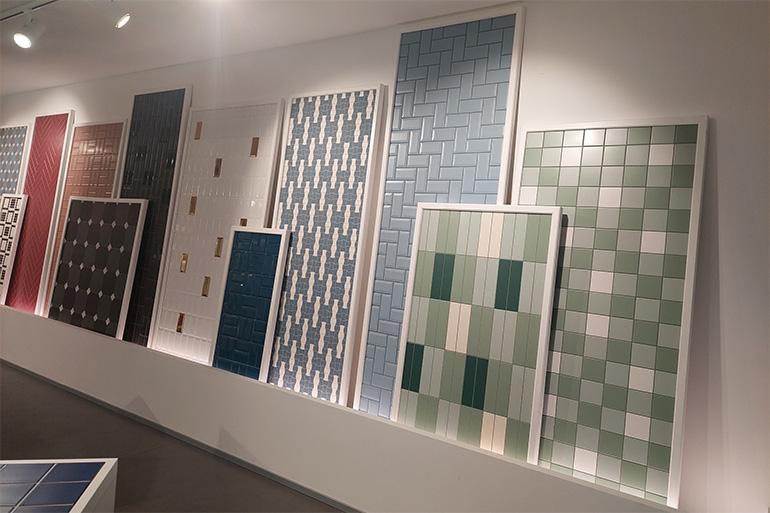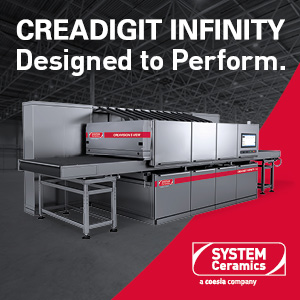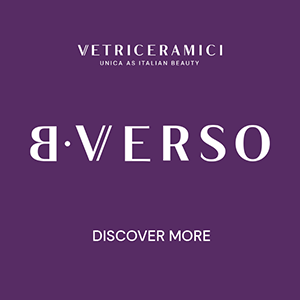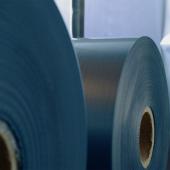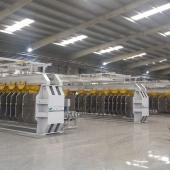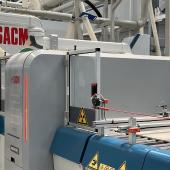CE.SI.’s small-format tiles now more sustainable than ever
The long-established Italian ceramic tile producer has completed a plant upgrade in collaboration with Sacmi to boost productivity and maximise environmental sustainability.
CE.SI. Ceramica di Sirone is a family-run company based in Sirone (Lecco) with over 60 years of experience in designing and manufacturing high-quality ceramic tiles and mosaics. Specialising in small-size porcelain stoneware and full-body coloured porcelain stoneware products, CE.SI. has become a recognised centre of excellence and a point of reference for architects and designers around the world. It is renowned in particular for its research into colour, careful selection of raw materials and attention to both technical and aesthetic quality.
CE.SI. recently completed a major innovation and technology investment aimed at boosting productivity while ensuring the highest levels of environmental sustainability.
Its longstanding partnership with Sacmi has continued to grow, resulting in ever-higher production performance.
The fourth Sacmi Maestro kiln
To further boost productivity, CE.SI. recently installed its fourth Sacmi Maestro kiln dedicated specifically to the production of mosaics in 25x25 mm and 10x30 mm sizes. With a length of 31.5 metres and inlet width of 2.01 metres, the FMS Maestro kiln guarantees precise temperature control and excellent colour and shade uniformity, crucial factors for high-quality firing of small-format tiles.
Equipped with high-efficiency burners, advanced temperature control systems and energy optimisation solutions, the new kiln minimises heat losses and contributes to more sustainable energy use.
The advanced filtration system
Alongside the introduction of the new kiln, CE.SI. has also invested in a state-of-the-art dust filtration system developed by Eurofilter, the Sacmi brand devoted to green technologies. The new bag filter system, which replaces two outdated cartridge filters, serves multiple departments (press feeding and pressing) and improves both efficiency and use of space.
With an airflow capacity of up to 45,000 m³/h and 90 kW of installed electrical power, the system ensures outlet dust concentrations of less than 10 mg/Nm³. This result is significant not only because it is below legal requirements but above all because it translates into a safer and healthier working environment and extends equipment service life.
Rooftop photovoltaic system
Another key step in CE.SI.’s sustainability strategy is the installation of a new rooftop photovoltaic system, carried out in partnership with Protesa, the Sacmi division specialising in renewable energy solutions. With an installed capacity of 535.92 kWp and a nominal power of 480 kW, the system supplies clean energy directly to the factory, cutting annual CO₂ emissions by 195 tonnes, equivalent to the absorption capacity of more than 7,787 trees.
By directly consuming the energy it generates, CE.SI. reduces its energy costs and overall carbon footprint. The photovoltaic installation is part of a broader industrial site upgrade, which also included refurbishing the warehouse roof to optimise integration with the photovoltaic panels.
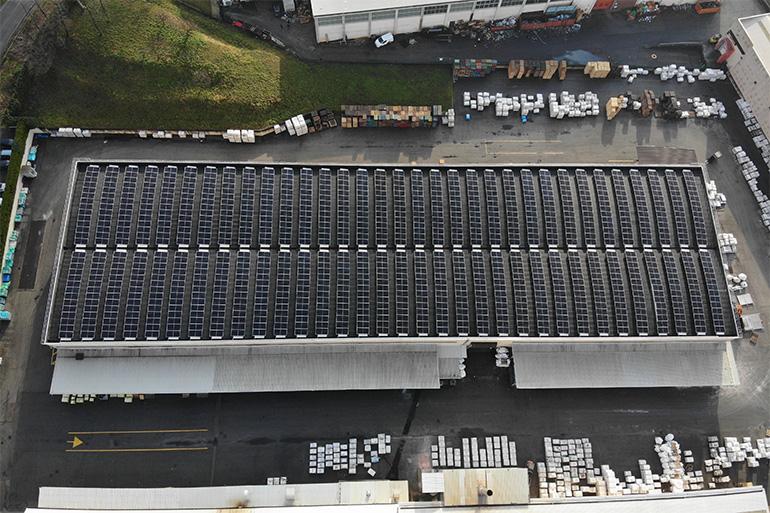
Craftsmanship meets innovation
With a covered production area of 17,000 square metres, CE.SI. stands out for its combination of artisanal craftsmanship and the most advanced ceramic technologies. The company has earned its leading market position thanks to the exceptional quality of its plain colour tiles and its ongoing research into small-size products.
Its wide range of sizes, more than 100 colours and multiple finishes offers architects and designers unlimited scope for creativity and eye-catching compositions. Each CE.SI. tile becomes a palette of perfect, uniform shades, achieved through advanced manufacturing processes that ensure high-quality gloss and matt finishes.
The investments in the fourth kiln, filtration system and photovoltaic array further underscore CE.SI.’s commitment to building a more sustainable future based on manufacturing efficiency and the highest levels of product quality. The company’s development model successfully combines tradition and innovation, benefiting not only its business but also the environment while meeting the needs of a market increasingly focused on excellence in ceramic design.
Did you find this article useful?
Join the CWW community to receive the most important news from the global ceramic industry every two weeks



